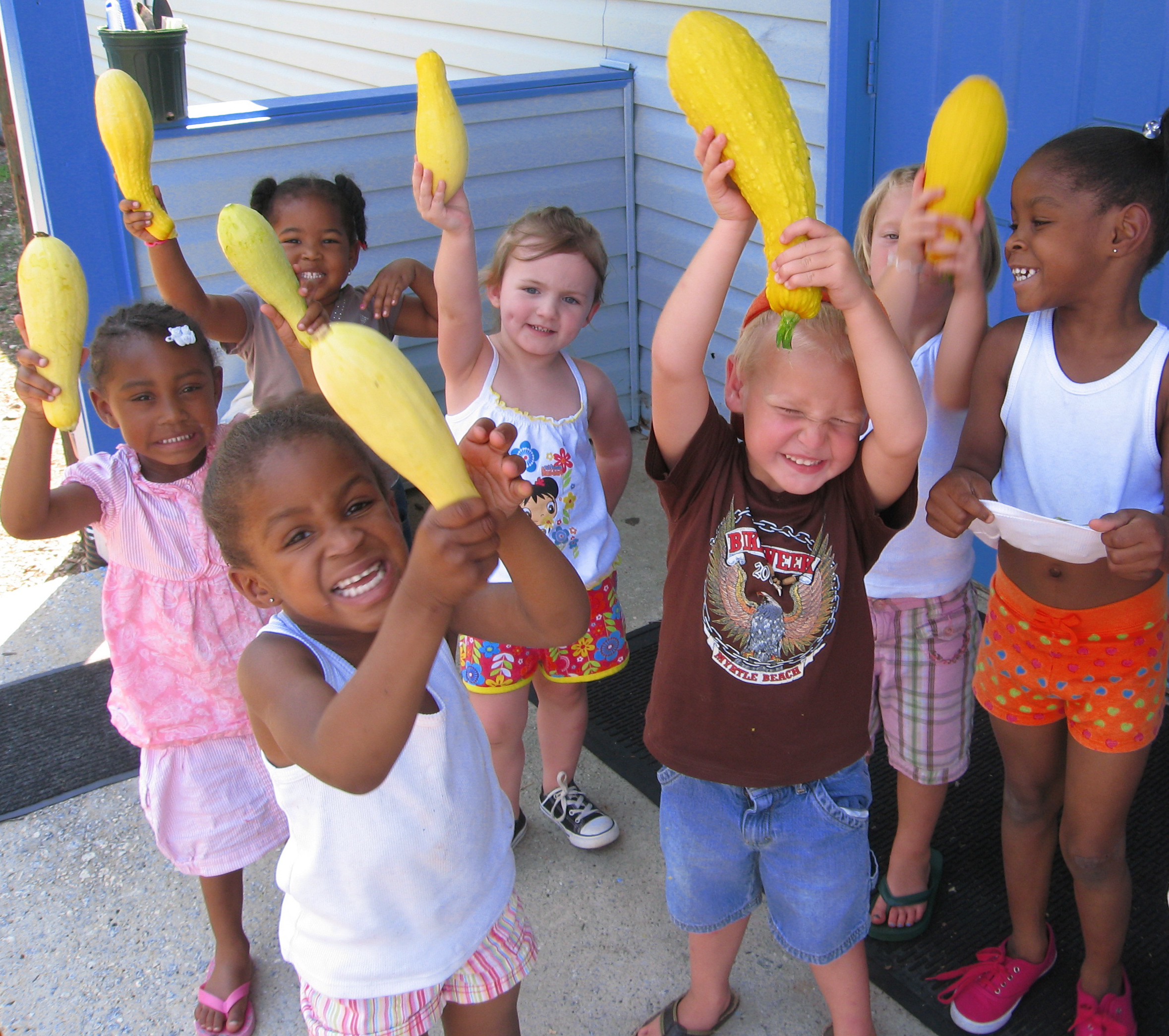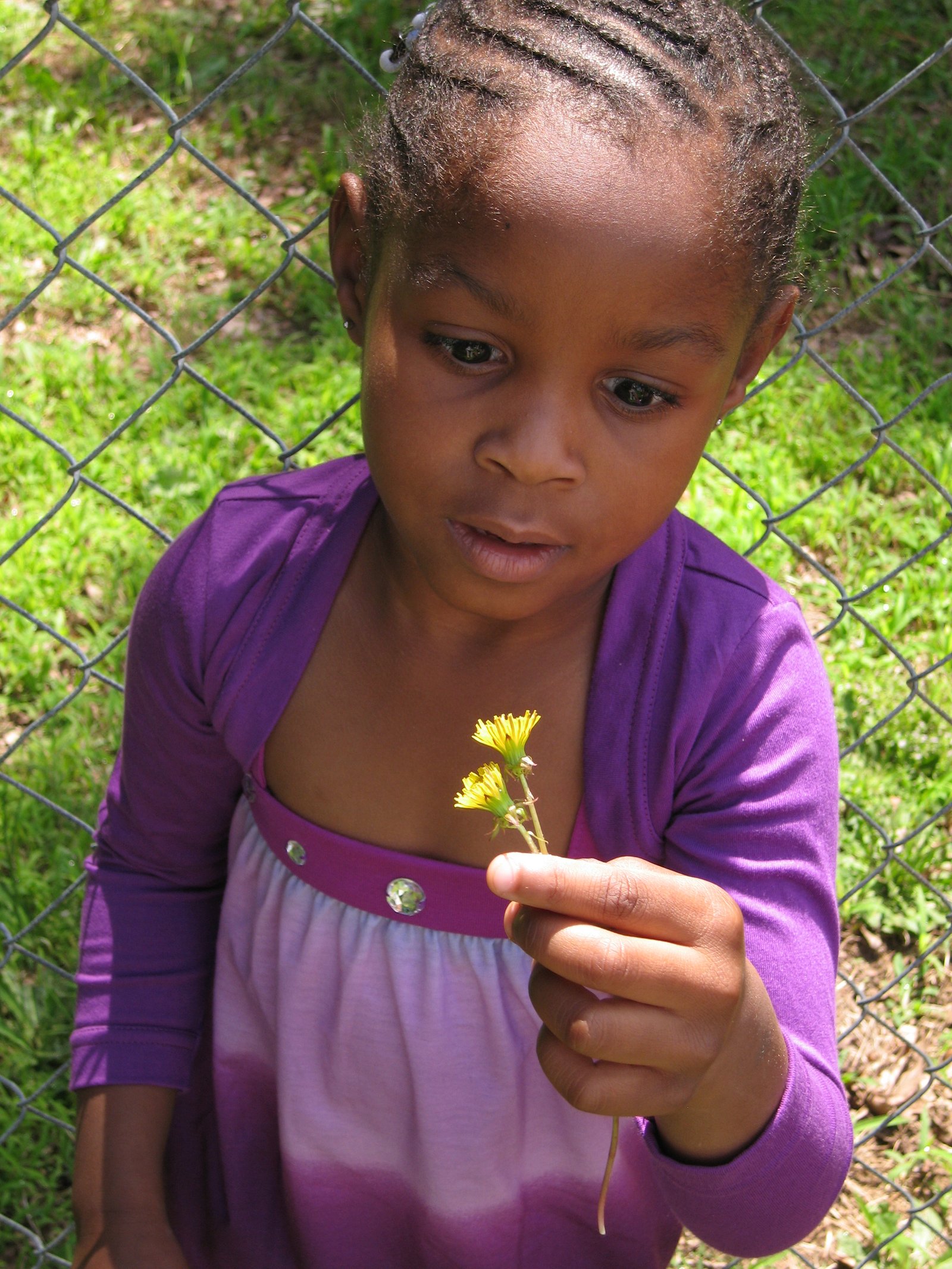
Gardening reclaims the heart in nature education! Gardening with children is active learning, and gardens are a place where the cycle of life and season’s come alive for kids.
An outdoor classroom promotes social interaction and communion with nature. And they can bridge age gaps by bringing together family and community members who are generations apart. They are a place of spontaneous hands-on discovery that can not occur sitting at a desk or reading a book.
Young children not only strengthen fine and gross motor skills, but experience their own impact on their environment. They hone in their observation skills and develop a scientific understanding as early as preschool years as they watch plants change and grow. Gardening is a way to learn the consequences of one’s actions in a very direct way.
Watching a seedling unfurl, witnessing the death of a neglected plant, raising a garden for butterflies — such experiences help students acquire a direct, personal understanding of what living things require to thrive, and how they adapt and interact. These connections serve as a vital foundation for developing a lifelong ethic of environmental stewardship.
Children learn about conservation and recycling, and develop skills they can use for the rest of their lives. The garden shows the children’s strength, ability, and love for the outdoors and nature. Gardening with kids gives them “a real-life connection to what they learn in the classroom and develops deep roots for lifelong learners.
Develop a curriculum that improves communication skills, increases their knowledge and understanding of each other, promotes peace, and brings about healthy changes in their lives, community, and the world. Sound nutrition and physical activity are one of the most important parts of a child’s health and development.
We are nature’s guest. The leader of a good outdoor classroom or study group must posses the ability to arouse curiosity and enthusiasm and share a genuine love for nature. Every situation should reflect the teachers environmental ethics.Our values reveal the relative importance of the human to other organisms. To establish values for the environment we need to observe and understand it.
Environmental values will inevitably become more and more critical as population growth, the lack of clean air and water, climate change, resource depletion and poverty grow.

There was a child went forth everyday,
And the first object he looked upon, that object he became,
And that object became part of him for the day
or a certain part of the day,
Or for many years or stretching cycles of years.
The early lilacs became part of this child,
And grass and white and red morning glories, and white and red clover,
and the song of the phoebe-bird,
And the Third-month lambs and the sow’s pink-faint litter,
And the mare’s foal and the cow’s calf.
Walt Whitman
